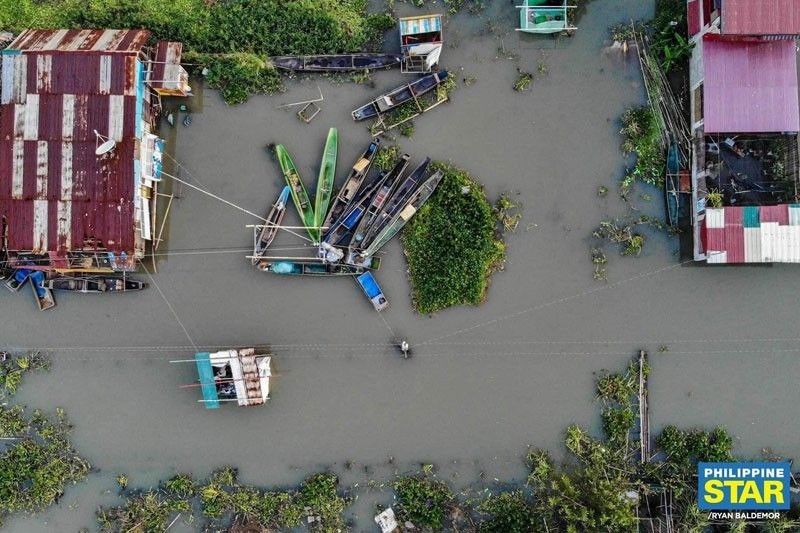Despite improvement, disaster preparedness among Filipinos still lacking – study

MANILA, Philippines — Eleven years since the devastation brought by Super Typhoon Yolanda, disaster preparedness among Filipinos remains lacking despite improvement in recent years, a Harvard study found.
The study, conducted by the Harvard Humanitarian Initiative (HHI), found a significant improvement in the self-reported disaster preparedness level of Filipino.
But it noted that “it is not enough for a country with the highest disaster risk in the world.”
From a score of 13.5 out of 50 in 2017, disaster preparedness among Filipinos improved to 19.2.
The score was based on five objective measures of disaster preparedness: planning, training, material investment, information and social support.
According to HHI, the Philippines obtained the highest score in terms of information support with 4.9 out of 10 (from 2.5 in 2017), followed by material investment with 4.5 (from 1.9), planning with 4.0 (from 4.1), training with 3.5 (from 2.3) and social support with 2.3 (from 2.7).
“A score of 19.2 highlights both progress and areas needing urgent attention. While it shows an improvement in disaster preparedness, the score suggests that Filipinos are only doing 38.4 percent of the kinds of disaster preparedness activities needed to be prepared,” said Vincenzo Bollettino, director of the HHI Resilient Communities program and co-lead of the study.
“For a country as vulnerable to disasters as the Philippines, this is not enough, so we must accelerate our efforts to ensure Filipinos are investing, planning, training and building closer ties to their communities,” he added.
Patrick Vinck, director of research at HHI, stressed the importance of investing in local leadership and leveraging technology to improve early warning systems and community engagement to enhance disaster preparedness in the Philippines.
“This should be accompanied by investments in resilient infrastructure, local capacities and anticipatory actions,” Vinck added.
The study collected data from 4,608 Filipinos across regions from February to March.
Nine out of 10 or 87 percent said they carry out measures to safeguard important documents such as birth certificates or property titles, while seven in 10 or 70 percent said they monitor typhoon and other disaster warnings.
A majority of the respondents said they carry out or are familiar with four other disaster preparedness measures: rainfall warning system (60 percent), discussing emergency plans with family (58 percent), house retrofitted and strengthened (55 percent) and had trees and bushes around their dwelling cleared (54 percent).
Fewer respondents had taken “material steps” to do other activities, such as having a disaster communication plan (42 percent), participated in drills (38 percent), having a first aid kit (33 percent), participated in disaster preparedness training (33 percent), having adequate supplies for medication (32 percent) and having a go bag (27 percent).
One in four or 25 percent said they have adequate insurance, while fewer respondents said they are a member of a group or association (23 percent), have disaster management plans (20 percent) and know their local disaster risk reduction and management officer (16 percent).
With the Philippines ranked as the most disaster-prone country for three consecutive years now, HHI stressed that increasing support and investments in preparedness are crucial.
“It is essential for key decision-makers and policymakers to understand disaster preparedness and resilience through the lens of Filipinos themselves to align relevant programs and policies with emerging needs and priorities at the household level,” researchers said.
HHI said its nationwide survey also explores climate change perceptions, mental health impacts, resilience of micro, small and medium enterprise resilience and disability-inclusive disaster risk reduction and management.
Loyzaga going to COP29
Environment Secretary Maria Antonia Yulo-Loyzaga will lead the Philippine delegation on an official mission to Baku, Azerbaijan for the 29th Conference of the Parties (COP29) to the United Nations’ Framework Convention on Climate Change on Nov. 11 to 22 amid the worsening climate crisis.
Loyzaga said the Philippine delegation will strive to follow up on previous commitments, including the $100 billion per year which the parties have previously agreed on.
“The Asia-Pacific nations that host a number of islands and our archipelago remain among the most vulnerable to the impacts of climate change,” Loyzaga said.
She emphasized the importance of COP29 to help address financing gaps in climate action.
“Limited fiscal space in climate vulnerable developing countries means we need urgent access to the best science, along with new, additional and appropriate financing and innovative mechanisms and instruments from public and private sources,” Loyzaga noted. — Bella Cariaso
- Latest
- Trending































